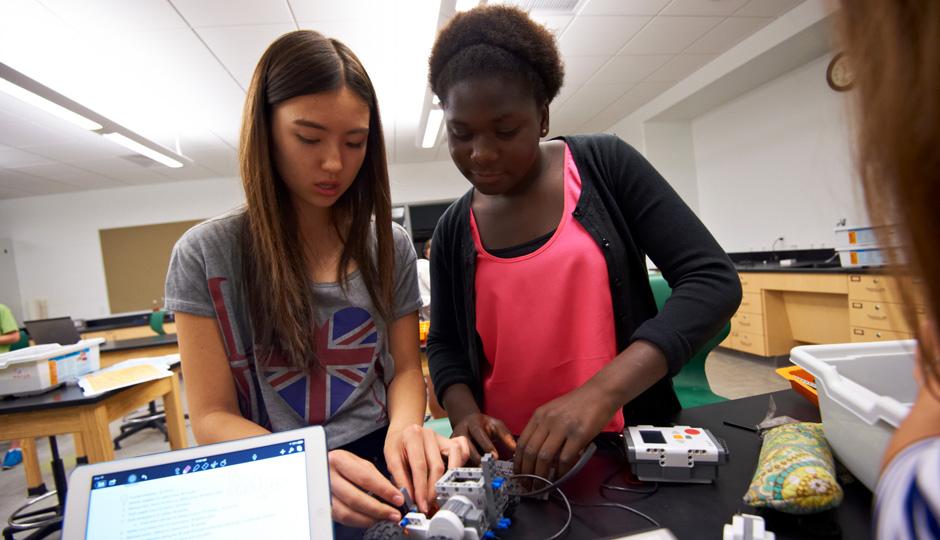Actions Speak Louder than Words: “Action-Based Education” and the Future of Learning
The world is not run by followers, but by leaders.
In today’s constantly changing social landscape, a passive approach to learning will not get one far in life. Most schools today are still based on an outdated model that puts the teacher and the content at the forefront of education. The key to unlock students’ full potential for grasping new information, concepts, and ideas is to put them in the center of the action with a curriculum and activities that engage them in hands-on, active learning.
This type of educational ideology is advocated by British education expert, speaker, and author Sir Ken Robinson, who believes that hands-on, active learning enables students to discover their true talents and passions. In Robinson’s view, unleashing students’ creativity is just as important as teaching them basic literacy skills, as stretching one’s imagination leads to achievement. The old-fashioned model of education is ingrained in teachers and administrators, but the old way of doing things is not necessarily the best way.
“The world has changed, but not all schools have changed along with it,” says Terry Dubow, Associate Head of School at Westtown School in West Chester, PA. “Most schools and teachers today are distributors of content,” he says, adding that “today the need is to help students use, analyze and synthesize information rather than just repeat it on cue.”
Westtown’s Action-Based Education model provides a unique framework for students – from kindergarteners to high school seniors – to be at the front and center of the world around them. Action-based education not only brings a distinctive and deliberate approach to academics, but also to community and life outside of the classroom. This model enables students to be active rather than passive learners and to “do” rather than to just “watch” or “listen.” It enables students to find their voice, to gain self-confidence, and to become leaders.
Through projects and initiatives at all grade levels, Westtown students gain a broad perspective and have unique experiences in which they see the world – which extends way beyond the typical content and skill acquisition emphasized in most schools. “Students are creating meaning,” says Margaret Haviland, Westtown’s Director of Teaching and Learning, “and that’s the power of action-based education.”
Examples of projects and initiatives utilizing Westtown’s Action-Based Education model include:
Lower School
- The 3rd grade study of Africa where students raise funds to support Heritage Academy in Ghana
- The new Lower School Innovation Lab in which students will use design-thinking techniques to create solutions for authentic problems
Middle School
- The new turtle-capture study in 7th grade science as part of the Lake Restoration Project
- The Middle School “Take Back the Tap” initiative to encourage the use of refillable water bottles to reduce plastic pollution
Upper School
- The “Social Action Project” in Peace and Justice through which 9th graders practice meaningful social change at the local, national, or global level on a topic about which they care deeply
- The Upper School Design and Engineering program in which collaborative teams of students design and build real-world solutions like a mechanical hand for a boy born without his left hand
In the long-term, a curriculum consisting of active, hands-on learning opportunities leads students to develop into future thinkers, doers, and leaders. Yet, how do these types of projects and initiatives benefit young people in the short-term?
The answer is simple: “To them, it becomes more than just completing an assignment for a grade,” Dubow explains. “Action-based education puts students in the center of the action, encouraging them to care about what they’re doing and learning – because it actually matters to them.”
For more information about Westtown School and how Westtown can benefit your child’s educational experience, please visit www.westtown.edu.
Westtown School, a pre-K – 12 college prep school that offers day and boarding options, was founded by Quakers in 1799. Westtown offers a challenging and diverse curriculum that emphasizes critical thinking, creative problem-solving, collaboration, service and social action.
This is a paid partnership between Westtown School and Philadelphia Magazine


